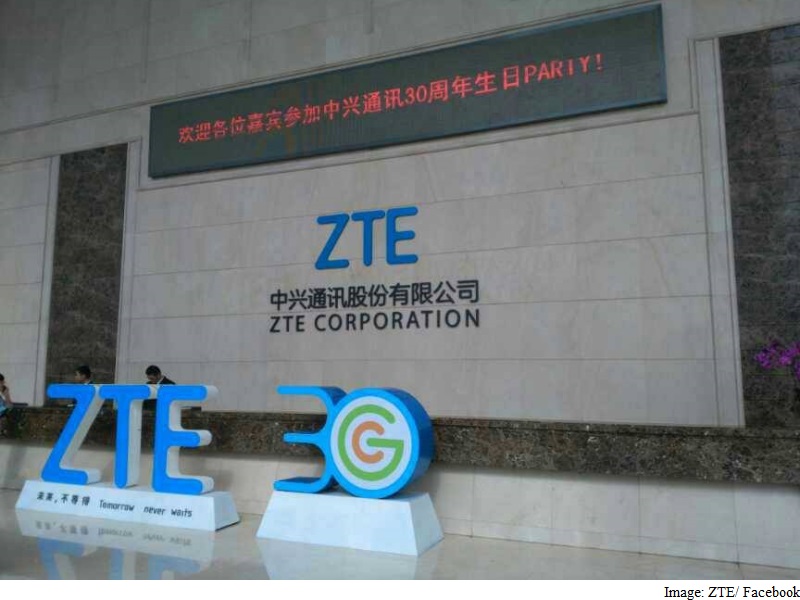
When an American company named Vringo discovered that ZTE, a Chinese telecommunications giant, had been using patented mobile technology for years without paying license fees, the US firm sought what it considered appropriate compensation.
What followed, the company says, was an extraordinary mixture of deceit, protectionism and collusion on behalf of the Chinese company by Beijing government regulators, who then launched a retaliatory investigation into Vringo.
The US company’s complaint, now being heard by a New York court, shows how China’s government, companies and even courts sometimes collude to abuse patent protection, discriminate against foreign firms and unfairly protect local businesses, US business leaders say.
While US industry groups have expressed similar concerns in the past, it is rare for individual American companies to publicly air grievances about Chinese practices for fear of losing business. This complaint, however, brings the allegations into the open.
It also shows, business leaders say, how China’s industrial policy – and particularly its policy toward the technology sector – has become more nationalist and protectionist under President Xi Jinping, a development likely to cloud his state visit to Washington later this month.
“What is clear is that this is part of a mercantilist, industrial policy that, on behalf of their global champions, they will work very closely hand-in-glove with them,” said Randal Phillips, a vice chairman of the American Chamber of Commerce in China and managing partner for Asia for the Mintz Group.
“ZTE is clearly being favoured,” he said, adding that the Chinese government was doing “whatever it can do” to support the company against US firms. It is a trend that has been going on for years but has intensified since Xi took office, he said. “It’s a combination of the new assertiveness that you see across the bureaucracy and certainly on the IT front since 2013,” when Xi became president.
Vringo’s business involves the development and monetization of intellectual property and mobile technologies. After purchasing a patent portfolio from Nokia in 2012, it says it discovered that ZTE had been using patented mobile technology to develop and sell telecommunications equipment for a decade – without paying a license fee.
In an effort to seek a settlement with ZTE, Vringo says it entered into a non-disclosure agreement with the Chinese company, sharing confidential business information. But, Vringo says, instead of negotiating in good faith, ZTE breached the terms of the agreement, using the confidential information to launch a separate court case against the US company in Shenzhen without informing Vringo.
ZTE also illegally shared the confidential information with the National Development and Reform Commission, China’s top economic policy-making body, in its effort to persuade Chinese state regulators to punish Vringo for overcharging to license the patent, the US company says.
ZTE and lawyers acting on its behalf declined to comment, citing pending litigation. The Chinese commission did not respond to requests for comment. But in an answer filed in federal court in August, ZTE denied infringing Vringo’s intellectual property rights and said it had acted “in good faith” and in compliance with US and Chinese laws. ZTE also disputed the validity of Vringo’s non-disclosure agreement, claiming it is “illegal or against public policy to the extent its enforcement would have the effect of suppressing evidence.”
ZTE and Vringo also have fought court battles over patent licenses in other countries. In January, a court in Germany ruled that ZTE did not infringe a pair of Vringo’s patents, but a British court ruled that one patent was infringed.
In a news release last year, ZTE also said it “steadfastly opposes” all abuses of intellectual property.
“As one of the world’s leading technology innovators, ZTE respects the intellectual property of other companies,” it said. “ZTE has signed dozens of global intellectual property licensing agreements with holders including Qualcomm, Siemens, Ericsson, Microsoft and Dolby Laboratories.”
Vringo says ZTE’s actions have allowed confidential, proprietary information that would be extremely valuable to its competitors to be widely disseminated. Vringo faces the prospect of having to defend itself in a Chinese court and faces a possible Chinese government probe.
“Vringo’s economic worth as an enterprise is based in substantial part on the value of its patent portfolio, which it licenses to third parties,” its then chief operating officer, Alexander Berger, told the US District Court in New York last year in a written statement. “If this information is ever made public, it will have lasting, irreparable harm on Vringo because every other third party will be aware of what Vringo was willing to offer in compromise and will use that in negotiations against Vringo.”
China’s development and reform commission appears to have backed ZTE completely, even advising the company to launch a campaign against Vringo in Chinese state media to influence “mass public opinion” into believing the US company was overcharging for its licenses.
Indeed, Vringo’s complaint alleges that the head of the commission yelled at the US company’s chief legal officer, David Cohen, during one meeting for not showing government officials “proper respect and obsequiousness.”
Among Cohen’s supposed offences: “not sitting with a straight back and not exhibiting a sufficiently deferential demeanour.”
During the meeting, the commission head frequently mentioned the presence of armed guards outside the office; that and the yelling made Cohen “significantly concerned about his personal safety,” Vringo’s complaint alleges.
[“source-gadgets.ndtv”]





